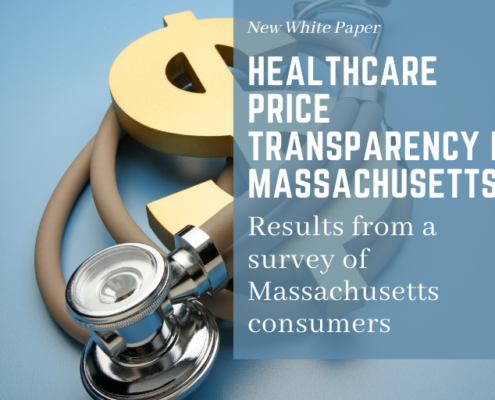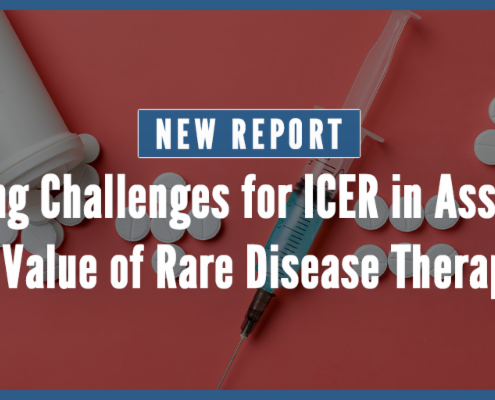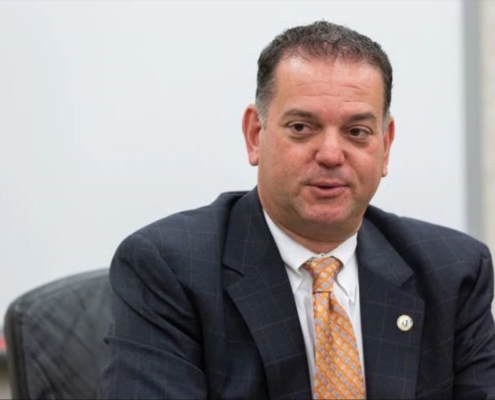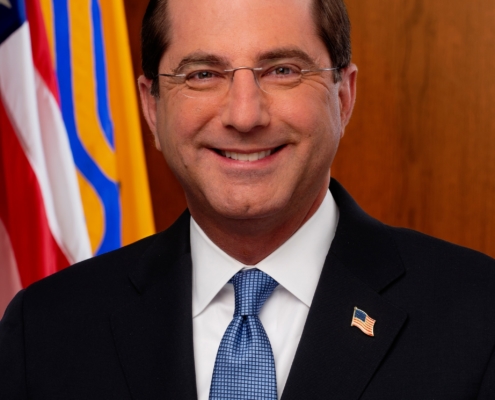Tag Archive for: Healthcare

Ten Health Policy Changes That Should Outlive COVID-19
A new study published by Pioneer Institute recommends ten healthcare reforms allowed during COVID-19 that should remain in effect permanently, after the state's emergency declaration for COVID-19 ends on June 15. These reforms have enhanced flexibility in the healthcare system, highlighting barriers that make the system more expensive, harder to access and less patient-centered.

A Rush to Judgment on Alzheimer’s Drug
0 Comments
/
The Boston-based Institute for Clinical and Economic Review (ICER) sells itself as an independent source of information on the value of pharmaceuticals. But earlier this month, their bias was again evident when they tried to kneecap a drug for a dreaded disease before there’s even enough data to determine how valuable the drug really is. ICER has adopted this same strategy in the past on innovative drugs for cancer, cystic fibrosis, and other devastating diseases. This time ICER’s target is aducanumab, Biogen’s drug for Alzheimer’s disease.

Study Calls for Better Reporting on Impact of COVID-19 in Eldercare Facilities
Over time, the Massachusetts Executive Office of Health and Human Services and Department of Public Health (DPH) have improved reporting about cases and deaths from COVID-19 in state-regulated eldercare facilities, but flaws and omissions remain and should be corrected, according to a new study published by Pioneer Institute.

Doctor Heal Thyself: Insider’s Prescription For Healthcare Reform
Host Joe Selvaggi talks with surgeon and New York Times bestselling author Dr. Marty Makary about the healthcare reform themes in The Price We Pay, the 2020 Business Book of the Year. The discussion covers the value of price transparency, provider accountability, and performance information to drive better medical outcomes and improve doctor and patient satisfaction.

Patient-centered Model Outshines Insurance-centered Healthcare during Pandemic
Joe Selvaggi talks with Pioneer Institute Senior Fellow Josh Archambault about his newest research paper entitled, "Direct Health Care Agreements: A New Option For Patient-Centered Care That Costs Less and Reduces Provider Burn-out" and how this emerging service model provided its patients with comprehensive health service throughout the COVID-19 pandemic.
Direct Health Care Agreements: A New Option for Patient-Centered Care That Costs Less and Reduces Provider Burnout
Especially in the COVID era, many are looking to alleviate the increased burden on the healthcare system. One solution is direct healthcare (DHC), which can provide more patient-centered care at affordable prices and is an effective model to increase access to care for the uninsured, underinsured and those on public programs like Medicaid. This paper aims to explain the possible benefits of DHCs, often using DPCs as an example, as they have built a successful record around the country and in Massachusetts.

Voting for Health: Party Opinions, Election Results & the Healthcare Policy Implications of Election 2020
Join Host Joe Selvaggi as he discusses with Harvard Professor Bob Blendon his New England Journal of Medicine Special Report, "Implications of the 2020 Election for U.S. Health Policy," which covers broad differences in both party’s view of the role of government in health care and what the election results will mean for Americans.

Survey: Consumers Want Healthcare Price Information, But Few Realize It’s Available
Great strides have been made to increase healthcare price transparency through online cost estimator tools and a state law that requires providers to give out price information. Yet despite the eagerness of consumers to access prices and out-of-pocket costs, many are unaware that such information is available and don’t know how to access it, according to survey results published by Pioneer Institute.

Healthcare Price Transparency in Massachusetts: Results from a survey of Massachusetts consumers regarding healthcare price transparency
In June 2019, Pioneer Institute, with support from Blue Cross Blue Shield of Massachusetts and the Massachusetts Association of Health Plans, contracted with noted pollster David Paleologos, head of DAPA Research at Suffolk University’s Research Bureau, to conduct a valid and reliable survey of Massachusetts consumers with employer sponsored health insurance. The goals of the survey were to determine consumers’ awareness, attitudes, views, usage, and knowledge of healthcare prices. This white paper presents analysis of the results.

Getting Nursing Home Care Right
Pioneer Institute has long recognized that seniors deserve the best of care and that innovative policy solutions are necessary to ensure that this population enjoys a high quality of life in their later years. In the 1990s, early 2000s and most recently in 2017, the Institute dedicated Better Government Competition topics to policy issues related to aging in America. Our goal each time was to find solutions and to take advantage of new innovations that would improve the quality of life and care for the elderly.

Drug Rebates: How Pharmacy Benefit Managers Manipulate Price & Limit Choice
Join host Joe Selvaggi and his guest Dr. Bill Smith as they discuss the complex incentive structure between drug manufacturers, health plans, and pharmacy benefit managers. In this episode, they focus on how drug rebates work and how a system intended to optimize value may actually deliver higher costs and fewer choices. Joe and Bill also use this framework to speculate on the price of a COVID-19 vaccine, and who will likely pay for it.

Doctors Beyond Borders: Firefly Health Shines a Light on Virtual Primary Care
Join Hubwonk host Joe Selvaggi as he speaks with Firefly Health President Fay Rotenberg and Primary Care Doctor and Co-Founder Jeff Greenberg as they discuss the promise and potential of virtual primary care to deliver direct doctor access, price transparency, and more holistic healthcare that may revolutionize the healthcare system.
Study: Shift from Highest-Priced Healthcare Providers Would Generate Tremendous Savings
Consumers in just one Massachusetts county could have saved nearly $22 million in a single year and $116.6 million adjusted for inflation over four years if they switched from using the most expensive providers for 16 shoppable healthcare services to those whose prices were closer to average, according to a new study published by Pioneer Institute.
Analysis of Spending on Shoppable Services in Massachusetts
This report reveals that consumers in just one Massachusetts county could have saved nearly $22 million in a single year and $116.6 million adjusted for inflation over four years if they switched from using the most expensive providers for 16 shoppable healthcare services to those whose prices were closer to average.

National Study Finds Most States Lack Healthcare Price Transparency Laws
At a time when the coronavirus pandemic has caused massive shifts in state policies on telehealth and scope of practice in healthcare, a new Pioneer Institute study underscores that most of the 50 states continue to suffer from weak laws regarding price transparency. The study identified states that have laws that require carriers, providers or both to provide personalized cost information to consumers before obtaining healthcare services. Fully 33 states placed in the lowest of the three broad analytic tiers on the strength of their state healthcare transparency laws.

Pioneer Report Offers Framework for Improving Greater Boston’s Global Competitiveness
Pioneer’s new report, Greater Boston as a Global Competitor, provides useful metrics to help Massachusetts formulate a strategy to become an even more attractive place for innovators and talent.

Pioneer Poll: MA Healthcare Consumers Overwhelmingly Want Price Information on Services, but Few Know How to Get It
A new Pioneer poll shows seven out of ten Massachusetts workers who get their health insurance through their employers want to know the price of a healthcare procedure before they obtain it, but most of them do not how to obtain such information, even though information is already available through their insurers’ cost estimator tools.

Pioneer Institute to Present Results of New Consumer Poll Monday at State House Healthcare Price Transparency Event
BOSTON – Pioneer Institute will present the results of a new…

Report: Rare Disease Patients Hurt by “One-Size-Fits-All” ICER Framework
This op-ed appeared in ICERWatch on June 26, 2019.
The Institute…

Putting a Price on Life: The Coming Fight Over Government Rationing of Medical Care
This article appeared on The Mackinac Center for Public Policy…

Making Healthcare Prices Accessible
Today, Pioneer Institute filed a Public Comment with the federal…

Here’s why Sarah Palin’s ‘death panels’ are now being debated in Massachusetts
This op-ed by Shira Schoenberg appeared in MassLive on April…

Issue Brief: Problems With The Institute of Clinical and Economic Review (ICER) and the QALY Methodology
This article by Chris Rochester appeared in The MacIver Institute…

Commentary: Proposed Drug Price Caps Would Stall Advances in Health Care
This op-ed by William Smith and Adam Crepeau appeared in the…

HHS Secretary Alex Azar doesn’t want drug access to become an equation
This op-ed by William Smith appeared in the Washington Examiner…

Action on health care pricing transparency needed to stem rising costs
The Hill
BY JIM STERGIOS AND CHARLES CHIEPPO, OPINION CONTRIBUTORS…

2019 Hewitt Health Care Lecture: U.S. HHS Secretary Alex Azar’s Remarks on Healthcare Price Transparency, Opioid Crisis, HIV Epidemic & More
This past Monday, Pioneer held the 13th annual Hewitt Healthcare…

U.S. HHS Secretary Alex Azar to Be Featured Speaker at Pioneer Institute’s 2019 Hewitt Healthcare Lecture
BOSTON – Secretary of the U.S. Department of Health and Human…

Study Finds Patient Cost for MRI Largely Unrelated to Overall Price or Insurer Contribution at 14 MA Hospitals
Read coverage of this report in WCVB-TV, Boston Herald, the Boston…

The U.S. shouldn’t use the ‘QALY’ in drug cost-effectiveness reviews
This op-ed by William Smith appeared in STAT News on February…
